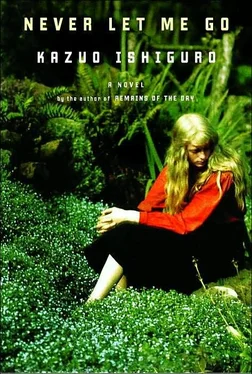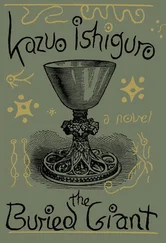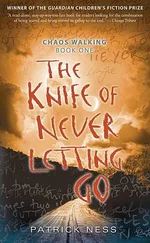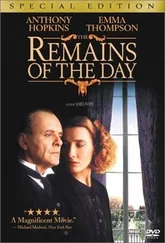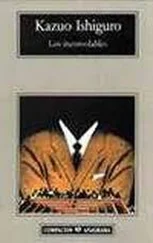“I’ll tell you, Kath, but you mustn’t spread it, all right? A couple of months back, I had this talk with Miss Lucy. And I felt much better afterwards. It’s hard to explain. But she said something, and it all felt much better.”
“So what did she say?”
“Well… The thing is, it might sound strange. It did to me at first. What she said was that if I didn’t want to be creative, if I really didn’t feel like it, that was perfectly all right. Nothing wrong with it, she said.”
“That’s what she told you?”
Tommy nodded, but I was already turning away.
“That’s just rubbish, Tommy. If you’re going to play stupid games, I can’t be bothered.”
I was genuinely angry, because I thought he was lying to me, just when I deserved to be taken into his confidence. Spotting a girl I knew a few places back, I went over to her, leaving Tommy standing. I could see he was bewildered and crestfallen, but after the months I’d spent worrying about him, I felt betrayed, and didn’t care how he felt. I chatted with my friend—I think it was Matilda—as cheerfully as possible, and hardly looked his way for the rest of the time we were in the queue.
But as I was carrying my plate to the tables, Tommy came up behind me and said quickly:
“Kath, I wasn’t trying to pull your leg, if that’s what you think. It’s what happened. I’ll tell you about it if you give me half a chance.”
“Don’t talk rubbish, Tommy.”
“Kath, I’ll tell you about it. I’ll be down at the pond after lunch. If you come down there, I’ll tell you.”
I gave him a reproachful look and walked off without responding, but already, I suppose, I’d begun to entertain the possibility that he wasn’t, after all, making it up about Miss Lucy. And by the time I sat down with my friends, I was trying to figure out how I could sneak off afterwards down to the pond without getting everyone curious.
The pond lay to the south of the house. To get there you went out the back entrance, and down the narrow twisting path, pushing past the overgrown bracken that, in the early autumn, would still be blocking your way. Or if there were no guardians around, you could take a short cut through the rhubarb patch. Anyway, once you came out to the pond, you’d find a tranquil atmosphere waiting, with ducks and bulrushes and pond-weed. It wasn’t, though, a good place for a discreet conversation—not nearly as good as the lunch queue. For a start you could be clearly seen from the house. And the way the sound travelled across the water was hard to predict; if people wanted to eavesdrop, it was the easiest thing to walk down the outer path and crouch in the bushes on the other side of the pond. But since it had been me that had cut him off in the lunch queue, I supposed I had to make the best of it. It was well into October by then, but the sun was out that day and I decided I could just about make out I’d gone strolling aimlessly down there and happened to come across Tommy.
Maybe because I was keen to keep up this impression—though I’d no idea if anyone was actually watching—I didn’t try and sit down when I eventually found him seated on a large flat rock not far from the water’s edge. It must have been a Friday or a weekend, because I remember we had on our own clothes. I don’t remember exactly what Tommy was wearing—probably one of the raggy football shirts he wore even when the weather was chilly—but I definitely had on the maroon track suit top that zipped up the front, which I’d got at a Sale in Senior 1. I walked round him and stood with my back to the water, facing the house, so that I’d see if people started gathering at the windows. Then for a few minutes we talked about nothing in particular, just like the lunch-queue business hadn’t happened. I’m not sure if it was for Tommy’s benefit, or for any onlookers’, but I’d kept my posture looking very provisional, and at one point made a move to carry on with my stroll. I saw a kind of panic cross Tommy’s face then, and I immediately felt sorry to have teased him, even though I hadn’t meant to. So I said, like I’d just remembered:
“By the way, what was that you were saying earlier on? About Miss Lucy telling you something?”
“Oh…” Tommy gazed past me to the pond, pretending too this was a topic he’d forgotten all about. “Miss Lucy. Oh that.”
Miss Lucy was the most sporting of the guardians at Hailsham, though you might not have guessed it from her appearance. She had a squat, almost bulldoggy figure, and her odd black hair, when it grew, grew upwards so it never covered her ears or chunky neck. But she was really strong and fit, and even when we were older, most of us—even the boys—couldn’t keep up with her on a fields run. She was superb at hockey, and could even hold her own with the Senior boys on the football pitch. I remember watching once when James B. tried to trip her as she went past him with the ball, and he was the one sent flying instead. When we’d been in the Juniors, she’d never been someone like Miss Geraldine who you turned to when you were upset. In fact, she didn’t tend to speak much to us when we were younger. It was only in the Seniors, really, we’d started to appreciate her brisk style.
“You were saying something,” I said to Tommy. “Something about Miss Lucy telling you it was all right not to be creative.”
“She did say something like that. She said I shouldn’t worry. Not mind what other people were saying. A couple of months ago now. Maybe longer.”
Over at the house, a few Juniors had stopped at one of the upstairs windows and were watching us. But I now crouched down in front of Tommy, no longer pretending anything.
“Tommy, that’s a funny thing for her to say. Are you sure you got it right?”
“Of course I got it right.” His voice lowered suddenly. “She didn’t just say it once. We were in her room and she gave me a whole talk about it.”
When she’d first asked him to come to her study after Art Appreciation, Tommy explained, he’d expected yet another lecture about how he should try harder—the sort of thing he’d had already from various guardians, including Miss Emily herself. But as they were walking from the house towards the Orangery—where the guardians had their living quarters—Tommy began to get an inkling this was something different. Then, once he was seated in Miss Lucy’s easy chair—she’d remained standing by the window—she asked him to tell her the whole story, as he saw it, of what had been happening to him. So Tommy had begun going through it all. But before he was even half way she’d suddenly broken in and started to talk herself. She’d known a lot of students, she’d said, who’d for a long time found it very difficult to be creative: painting, drawing, poetry, none of it going right for years. Then one day they’d turned a corner and blossomed. It was quite possible Tommy was one of these.
Tommy had heard all of this before, but there was something about Miss Lucy’s manner that made him keep listening hard.
“I could tell,” he told me, “she was leading up to something. Something different.”
Sure enough, she was soon saying things Tommy found difficult to follow. But she kept repeating it until eventually he began to understand. If Tommy had genuinely tried, she was saying, but he just couldn’t be very creative, then that was quite all right, he wasn’t to worry about it. It was wrong for anyone, whether they were students or guardians, to punish him for it, or put pressure on him in any way. It simply wasn’t his fault. And when Tommy had protested it was all very well Miss Lucy saying this, but everyone did think it was his fault, she’d given a sigh and looked out of her window. Then she’d said:
Читать дальше
